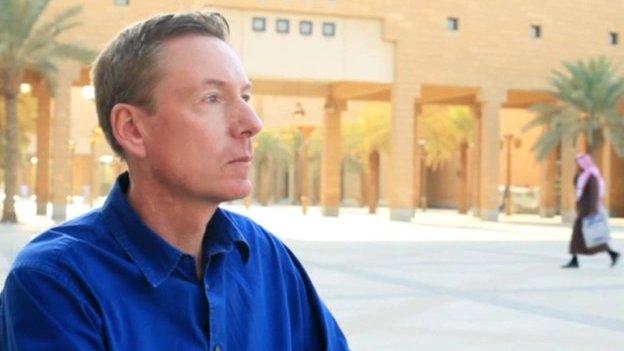Saudi activist Waleed Abu al-Khair sentenced to prison
- Published
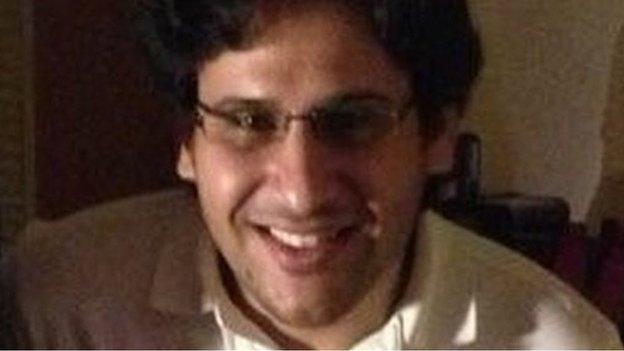
Until his latest detention in April, Waleed Abu al-Khair was a vocal critic of the government
The sentencing of the prominent Saudi human rights activist Waleed Abu al-Khair to 15 years in prison has been condemned by Human Rights Watch (HRW).
The "outrageous" jail term showed how far the Saudi authorities would go to silence those speaking out for human rights and political reform, it said, external.
On Sunday, a court in Jeddah convicted Mr Abu al-Khair of charges including "undermining the regime and officials".
He was also fined $53,000 (£31,000) and ordered to disband his organisation.
The Monitor of Human Rights in Saudi Arabia, which Mr Abu al-Khair founded, said the activist would refuse to sign the verdict or appeal because he did not see the court as legitimate.
'Continuing crackdown'
HRW said Jeddah's Specialised Criminal Court - which tries terrorism cases - had convicted Mr Abu al-Khair on "vague charges that stem solely from his peaceful activism".
In addition to the charge of "undermining the regime", Mr Abu al-Khair was found guilty of "inflaming public opinion", "insulting the judiciary", "harming public order", founding an unlicensed organisation, and violating the anti-cybercrime law.
Although the court suspended five years of the sentence, it also imposed a 15-year ban on travelling abroad and told him to shut down all of his internet accounts.
Mr Abu al-Khair refused to respond to the charges against him during the trial, his wife Samar Badawi said. He referred instead to a note submitted to the judge declaring that he did not recognise the court's legitimacy.
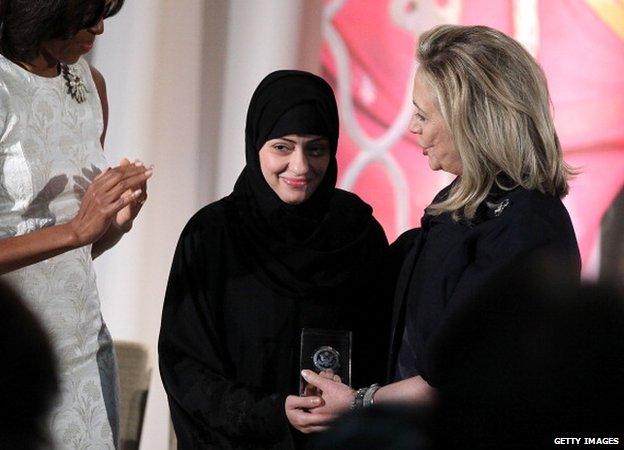
Mr Abu al-Khair's wife, human rights activist Samar Badawi (centre), was awarded the 2012 International Women of Courage Award in the US
"This outrageous sentence against Waleed Abu al-Khair shows how far Saudi Arabia will go to silence those with the courage to speak out for human rights and political reform," said Sarah Leah Whitson, HRW's Middle East and North Africa director.
"Saudi Arabia has invariably dealt harshly with its citizens who criticise Saudi policies, but putting a peaceful activist behind bars for at least a decade over his social media comments and statements to news media is a new low," she added.
The US state department also said it was "troubled" by Mr Abu al-Khair's sentence.
"We urge the Saudi government to respect international human rights norms, a point we make to them regularly," spokeswoman Jen Psaki said.
In October, a criminal court in Jeddah sentenced Mr Abu al-Khair to three months in prison after convicting him on charges including "insulting the judiciary" and "attempting to distort the reputation of the kingdom".
Ms Whitson said the crackdown on peaceful human rights activists "makes a mockery of its membership of the UN Human Rights Council in Geneva, whose members are expected to promote and protect the very rights that the Saudi authorities are trampling underfoot".
On 25 June, a criminal court in Riyadh sentenced Fowzan al-Harbi, a member of the Saudi Civil and Political Rights Association, to seven years in prison, HRW said. He was convicted of charges including "participating in, calling for, and inciting breaking allegiance with the ruler" and "describing the Saudi regime - unjustly - as a police state".
- Published3 October 2013

- Published28 September 2013
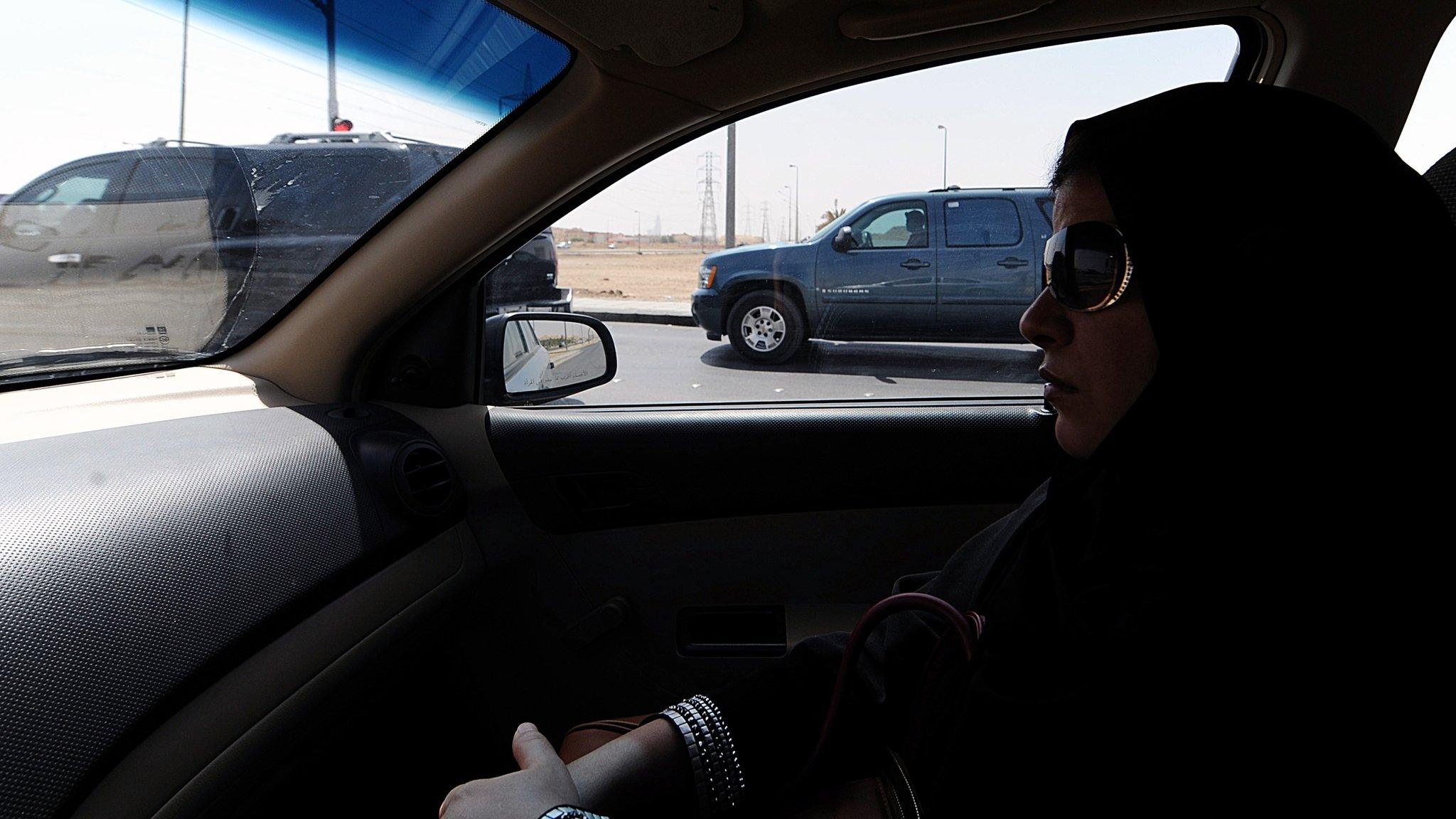
- Published30 July 2013
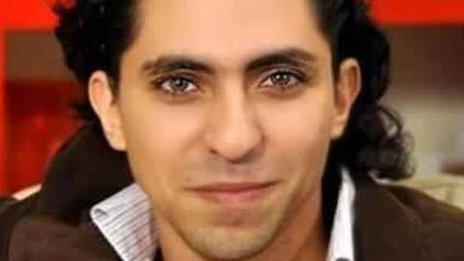
- Published7 April 2013
